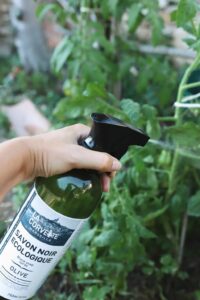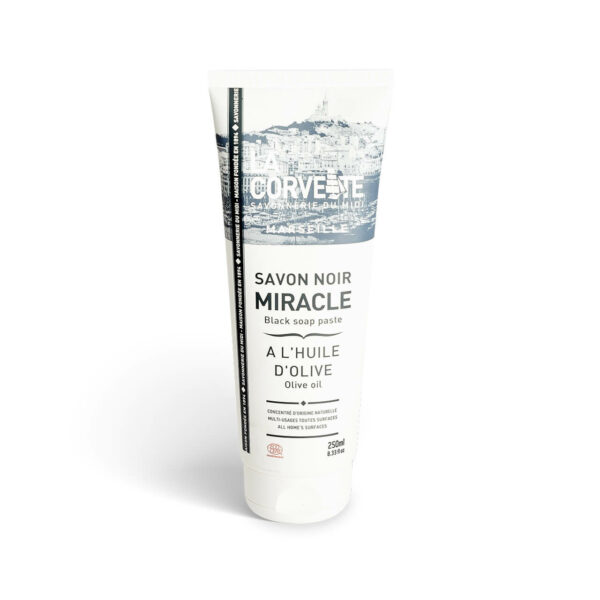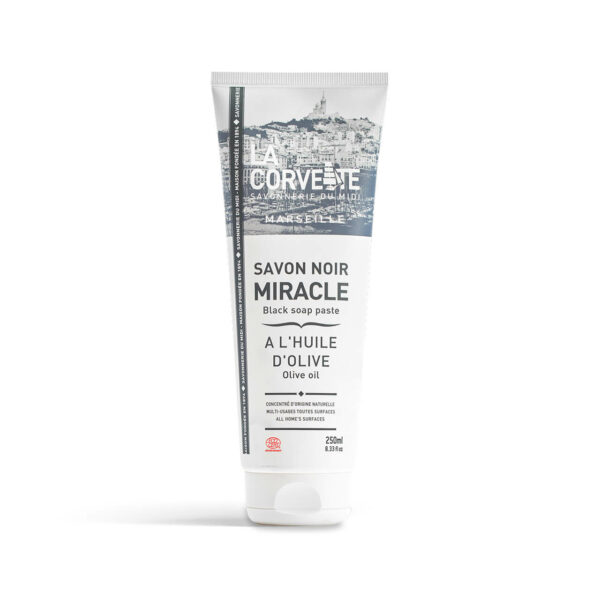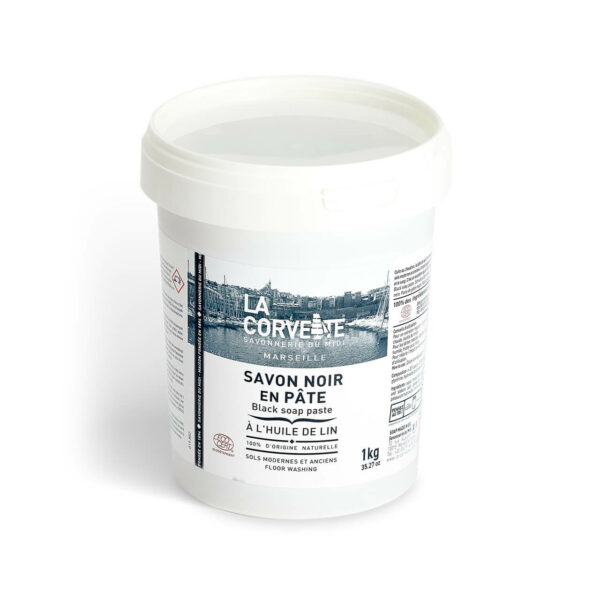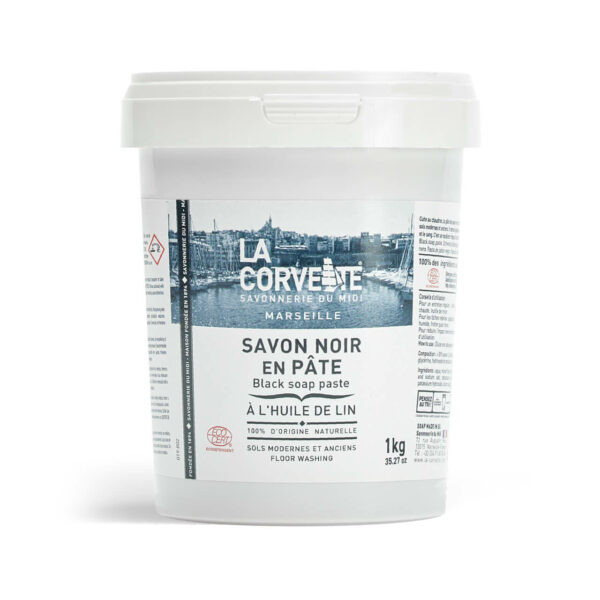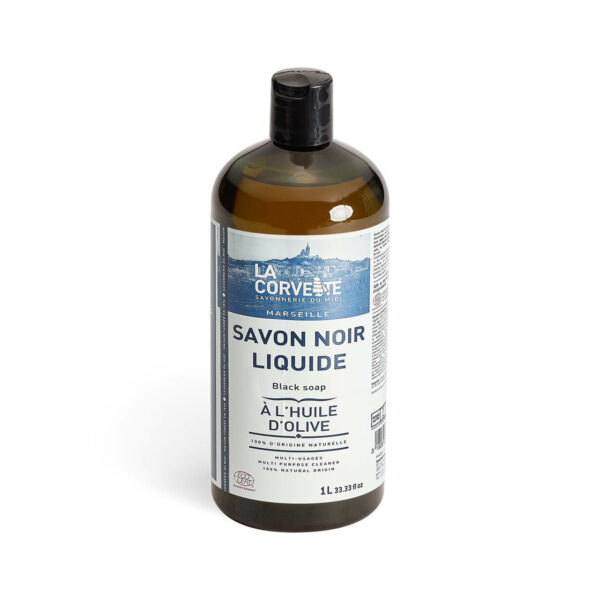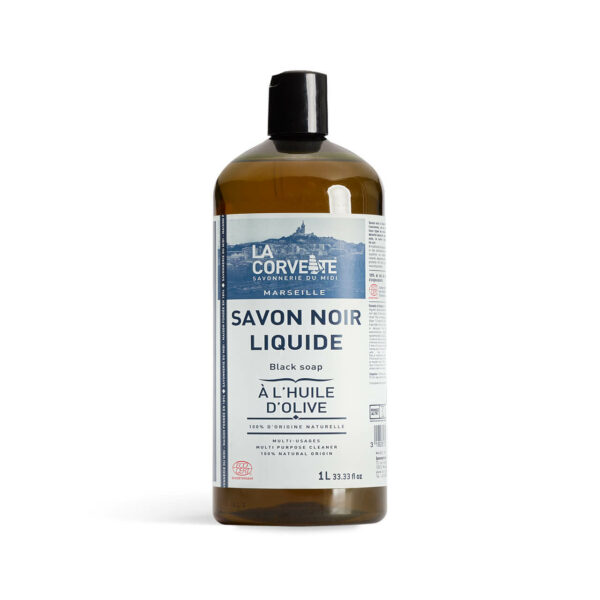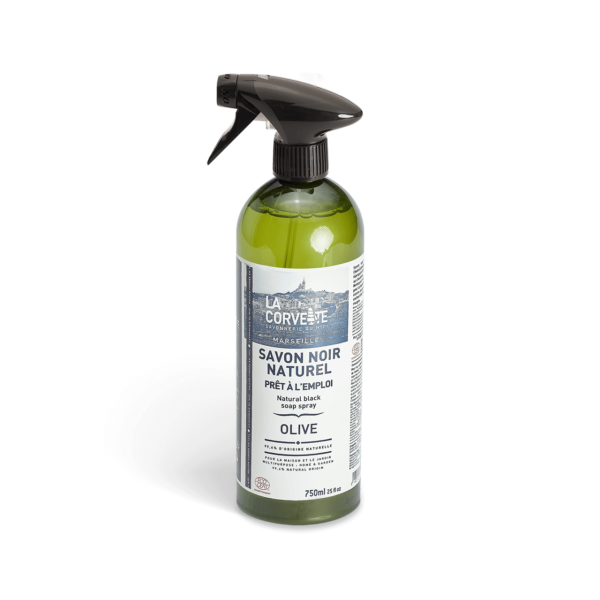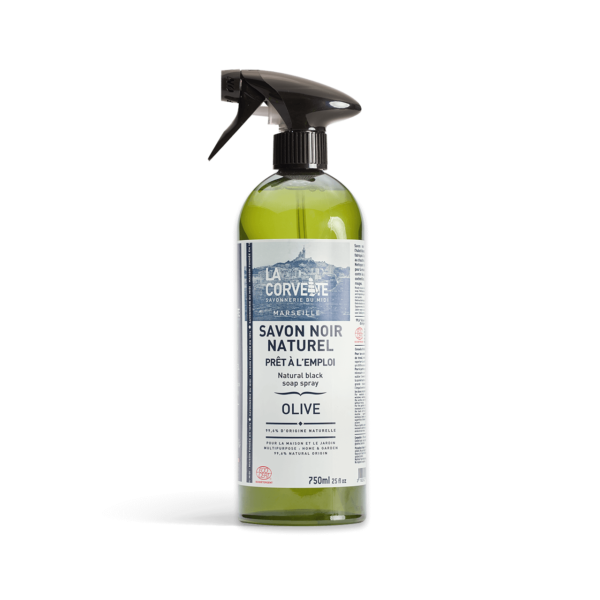5 uses for black soap in your garden
A household product much appreciated for its efficiency and natural origin, the black soap can also become a gardener's best friend. Harmless to our health, or that of our pets, it is highly effective in many situations. Discover 5 amazing ways to use black soap in your garden or on your house plants!
1. Controlling aphids, caterpillars and insect pests
Black soap can be an excellent ally for fight against many parasites. Without posing any risk to your health, it effectively eliminates mealy bugs, aphids, red spiders, psyllids and other insect pests that attack your plants.
Its use is very simple:
Dilute the liquid black soap in lukewarm water, according to the instructions on the label, or at a rate of 8 cl (about 5 tablespoons) per litre;
Wait for the mixture to cool down to a warm or moderate temperature;
Spray the mixture on your plants at the end of the day in the shade, not forgetting the underside of the leaves;
If necessary, repeat the operation several times to get rid of all pests.
You can also order your special garden black soap spray directly from La Corvette. Certified ECOCERT and based on olive oil, it is guaranteed to be solvent and dye free.
2. Containing an ant infestation
Ants play an important ecological role. They remove dead insects and organic waste, and are a favourite food source for many birds. Their galleries also aerate the soil and contribute to its health.
However, their proliferation can become a real problem, causing daily discomfort. The invasion can also reach the house, and more particularly the kitchen. Beware of plundering your cupboards!
To control an ant infestation, you can dilute 8cl of black soap (about 5 tablespoons) in boiling water, and pour the mixture while still very hot over the ant farm. You can repeat the operation if necessary.
3. Controlling downy mildew and powdery mildew
Downy mildew and powdery mildew are different cryptogamic, or fungal, diseases that affect many plants. They are characterised by the appearance of white filaments and rot, and can affect many plants: potatoes, vines, lettuce, squash and tomatoes are all affected.
Black soap can help you preserve or free your plants from mildew or powdery mildew, thanks to a simple and natural recipe:
Mix 2 litres of water, 3 cl of black soap (two tablespoons), and 0.5 cl of sodium bicarbonate (one teaspoon);
Wet the plants affected by mildew or powdery mildew with the mixture obtained, using a sponge;
Repeat the treatment after each heavy rain.
4. Increase the effectiveness of your Bordeaux mixture
Bordeaux mixture has been known since the 19th century for its antifungal properties. It is made of lime and copper and is authorised for use in organic agriculture within the framework of a reasoned use.
Some gardeners combine black soap with their Bordeaux mixture. The surface-active qualities of black soap increase the wetting power and effectiveness of the Bordeaux mixture:
Dilute 2 cl of black soap (one tablespoon and one teaspoon) in 10 cl of very hot water (7 tablespoons);
Wait for the mixture to cool;
Add the mixture obtained to 1 litre of Bordeaux mixture;
Spread your Bordeaux mixture in your garden.
5. Cleaning your outdoor furniture and fittings
An excellent household cleaner, black soap is equally effective inside and outside your home!
You can use it to scrub and clean your garden furniture, planters, pots and tubs, screens, coping stones, gutters, garage doors and window sills.
Black soap, used pure and combined with a brush, can also effectively degrease the barbecue and its accessories (brush, grill, utensils). All you have to do is rinse with hot water and your equipment will be as good as new!
Bonus. To be part of an eco-responsible management of your garden
Black soap is part of a more responsible and healthy consumption. It also makes it possible to significantly reduce the use of chemical or synthetic products, and thus contributes to the preservation of the environment and biodiversity. Have you adopted the various uses of black soap for your garden? Other reflexes are possible to engage you on the way of a gardening more respectful of nature.
You can exchange synthetic fertilisers for natural ones. Horse manure, for example, is an excellent fertiliser, given free of charge by riding schools and horse owners.
Natural beneficials are valuable allies in reducing the use of plant protection products. Ladybirds feed on aphids, for example, and great titmice love caterpillars and insects. If rodents invade your property, owls will feast on them. For example, you can buy ladybird larvae from a specialised shop, and install nesting boxes to attract birds.
Is the use of plant protection products unavoidable? You can choose products that are compatible with organic farming. This is often mentioned on the packaging.
Photo Credit: Julie Sunwhere



